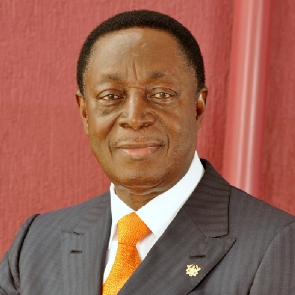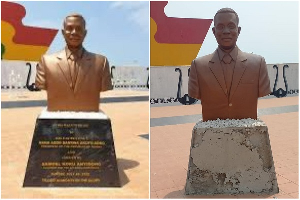The Domestic Debt Exchange Programme (DDEP) being undertaken by the government is not the panacea for restoring the ‘broken economy’ back on track, former Minister of Finance, Dr Kwabena Duffour, has cautioned.
According to him, debt treatment was just one aspect of the fiscal tool box and could not be used to bring about economic recovery unless it was linked up to a drastic drop in inflation, bank lending and reduction of the size of government.
“The debt treatment is just one aspect in the fiscal tool box. You cannot use the debt exchange programme to bring about economic recovery if you don’t link it up to drastic drop in inflation, link this up to bank lending and link it up to drastic reduction in size of government,” he stressed.
In an interview with the Ghanaian Times at his office in Accra yesterday, Dr Duffour said the issue confronting the country was the excessive spending on interest payments which had been occasioned by high level of borrowing by government.
“We spend too much on servicing debt because of interest payments, so if we don’t take measures to make sure the interest cost does not rise again then we will be back to square one and this debt treatment will yield no results,” he stressed.
Dr Duffour who is one of the National Democratic Congress (NDC) flagbearer aspirants for the 2024 presidential elections said even though debt treatment would give the country the breathing space, urgent steps must be taken to ensure that the fundamentals of the economy picked up to support economic growth.
He said the government had worsened its situation with how the whole exercise was carried out, stressing that “As economists, it is not like we were against the debt treatment because we saw it coming but how the whole exercise was carried out was not right. It has indeed damaged the confidence of the investor community and that is going to impact economy growth.”
The former governor of the Bank of Ghana said the country could have avoided the situation it found itself in if it had not embarked of the kind of borrowing spree witnessed between 2013 and 2021 on the bond market both international and domestic.
He said the country was now confronted with a huge problem of rapid growth in expenditure, deteriorating domestic revenue mobilisation leading to a huge debt service problem and any attempt to reset the economy would have to tackle these issues head-on.
Unfortunately he said the difficulty was that those who created the problem could not be part of the solution unless there was high level of awareness among them.
He noted that it would take a new crop of persons with a high level of consciousness to deal with the current economic challenges since those involved in the mess could not be trusted to resolve them.
Dr Duffour said it was sad that the present crop of managers of the economy had not learnt from the fact that the borrowing spree embarked on between 2013 and 2021 was what had landed the country in the economic crisis.
Business News of Tuesday, 21 February 2023
Source: ghanaiantimes.com.gh

















